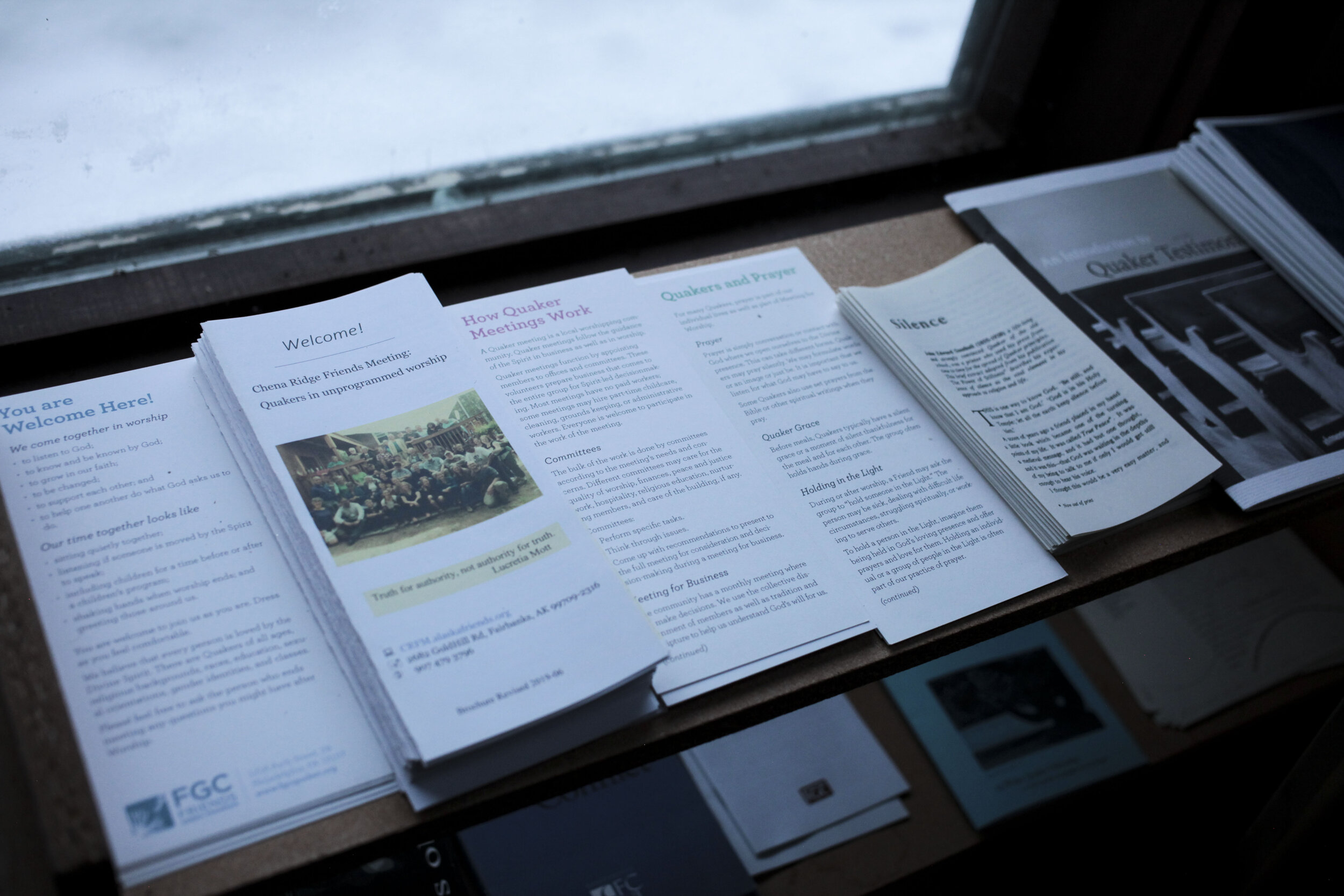Quaker Beliefs and Testimonies
QUAKERS BELIEVE
Every person is known by God and can know God in a direct relationship.
Quakers strive to live lives that are guided by a direct encounter with the Divine, more than by teachings about the Divine. Quaker terms for the Holy include God, the Seed, the Light Within, the Spirit, and the Inward Teacher, among others.
Testimonies are ways that Quakers have found to express our experience of the Divine in our lives. Some of the best recognized testimonies include simplicity, integrity, equality, community, and peace.
FRIENDS TESTIMONIES AND PRACTICES
From the beginning, the Testimonies of Friends emerged as a direct outgrowth of Friends’ faith. The testimonies are an outward witness to inner belief and demonstrate how Friends live our faith. The following quotations provide a modest introduction to Quaker Testimonies.
Community
The Meeting community provides a framework to lovingly care for those in need and forms a basis from which we can test, find support for, and exercise leadings of the spirit.
—Pacific Yearly Meeting, Faith and Practice
Equality
Equality is the earliest Quaker social Testimony. Quaker equality does not imply equality of ability or economic resources, but is based on the concept that each person is due equal respect. This has led to a conscious effort to eliminate all words and behavior that arise from distinctions in class, race, nationality, age, creed, gender, sexual identity, or social status.
—Based on Pacific Yearly Meeting, Faith and Practice
Integrity
Integrity is essential to all communication between persons and between persons and God. It has always been a basic goal of Friends. Great care should be observed in speech. Factual statements should be as accurate as possible, without exaggeration or omission.
—Paraphrased from Philadelphia Yearly Meeting, Faith and Practice
Peace
We utterly deny all outward wars and strife and fightings with outward weapons, for any end, or under any pretense whatsoever; this is our testimony to the whole world. The Spirit of Christ by which we are guided, is not changeable, so as once to command us from a thing as evil, and again to move us to fight and war against any man with outward weapons, neither for the Kingdom of Christ nor for the Kingdoms of this world. Therefore, we cannot learn war any more.
—George Fox and others, about 1660
Service
Quakers have long been involved in a wide range of action rooted in our faith: in the cause of peace and reconciliation, local national or international; on behalf of oppressed or deprived people; in furtherance of our testimonies to honesty and integrity.
—Paraphrased and quoted from Quaker Faith & Practice Yearly Meeting of the Religious Society of Friends(Quakers) in Britain
Simplicity
Simplicity means genuineness and sincerity and is based on the right ordering of one’s priorities in placing devotion to God at the center of life. Like the other testimonies, simplicity is not something to be achieved, but a free gift of God’s grace. Simplicity is a testimony for right living and against superfluity in dress, speech, and behavior.
—Condensed from Pacific Yearly Meeting, Faith and Practice
Stewardship
Frugality is good, if liberality be join’d with it. The first is leaving off superfluous expenses; the last bestowing them to the benefit of others that need. The first without the last begins covetousness; the last without the first begins prodigality; Both together make an excellent temper. Happy the place wherever that is found.
—William Penn quoted in Philadelphia Yearly Meeting Faith and Practice
Unity
Friends believe that everyone is a child of God. Therefore, all must relate to one another in terms of the Divine Spark within each. Everyone must be regarded as of infinite worth and must be treated as a person who can be drawn by love to live a full and worthwhile life which manifests respect and considerateness for others. When Friends are at their best, that love leads to unity in their meetings.
—Philadelphia Yearly Meeting, Faith and Practice

